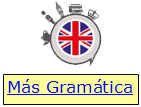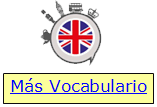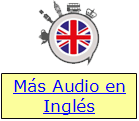 Gramática: Question tags Gramática: Question tags
You were born in Belfast, weren’t you? (repeat the auxiliary verb. If
the auxiliary verb is negative, the question tag is positive, and if the
auxiliary verb is positive, the question tag is negative.
You don’t speak Italian, do you?
You haven’t been to Disneyland, have you? – No, I haven’t.
You weren’t born in Dublin, were you? – No, I wasn’t.
Reza, you like fish, don’t you?
You don’t like raw eggs (huevos crudos), do you?
Nice day today, isn’t it?
Let’s have a cup of tea, shall we?
Use questions tags for: expressing surprise, confirming information,
starting conversations and making suggestions.
 Vocabulary Corner: Cooking verbs Vocabulary Corner: Cooking verbs
Reza has recently cooked some chicken soup, and he’s very proud of it!
Cooking Verbschicken soup
to boil = hervir
to simmer = cocer a fuego lento, estofar
stock – caldo
free-range chicken – pollo de campo/granja
to steam = cocinar al vapor
to cut = cortar
to chop = trocear, picar
lamb chops = chuletas de cordero
to slice = cortar en lonchas, rebanadas
to dice = cortar en daditos
to heat = calentar – ‘heat’ is also a noun: “The soup is ready, take it
off the heat.”
to heat up (phrasal verb) and to ‘re-heat’ = to heat again.
 Phrasal verbs: Phrasal verbs:
try on = probarse
write down / jot down / note down = anotar
a “jotter” is a notebook (bloc de notas)
take back = devolver
give up = dejar – Craig will never give up chocolate!
cut down = talar to cut down a tree or a bush (arbusto) / to cut down ON
something (reducir)
wash up = fregar – to wash up the dishes or DO the washing up.
take up = empezar, dedicarse
put off (postpone) = posponer
 *Dispones
de más
PODCAST en inglés publicados en los cuadernos anteriores *Dispones
de más
PODCAST en inglés publicados en los cuadernos anteriores
a los que puedes acceder directamente así como al índice de su
contenido. |
|
|
 Gramática: Question tags
Gramática: Question tags

 *Dispones
de más
*Dispones
de más


